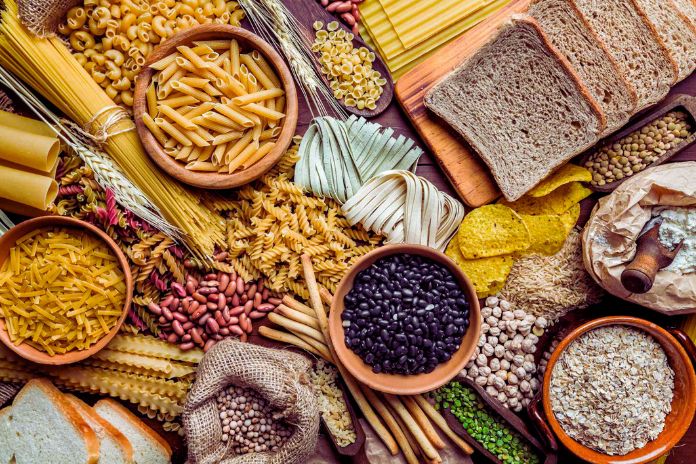What are Carbohydrates? Regardless of the region of the country where you live, they are likely to have a guaranteed presence on your breakfast, lunch, or even dinner plate.
Therefore, it is very important to know the function of these foods and their importance from a nutritional point of view. However, besides these important questions, carbohydrates have been at the center of great controversy for some years. After all, are they villains or heroes for those trying to lose weight?
Do they have a big responsibility for the obesity epidemic throughout Western civilization, especially in the Americas?
If you also have these questions, continue reading this article. We will explain what carbohydrates are, their importance in a balanced diet, and if the restriction of these foods — the famous low-carb diets — is the best alternative for those who need to eliminate fat and gain health. Check out!
What Are Carbohydrates?
Many foods that are part of our daily menu have three chemical elements in their constitution: carbon, hydrogen, and oxygen. When they have this composition, they are called carbohydrates or carbohydrates.
Many of the foods we eat are high in carbohydrates. It is generally found in vegetables that produce starch (such as grains, cereals, roots, or tubers) and in those that contain sugar (fruits, honey, etc.).
So, even if you consider this chemical part less interesting, it’s worth finding out what carbohydrates are and how much they are in your daily life.
What Is The Function Of Carbohydrates?
In addition to knowing what carbohydrates are, it is also important to understand their function in the body. As you can see, they are very present on our menu.
The frequent consumption of carbohydrates has a reason: they dump glucose (sugar) into our bloodstream. Therefore, they provide the energy the body needs to function and carry out day-to-day activities: work, study, physical exercises, household chores, transportation, etc.
In addition, carbohydrates are essential for brain function. This important organ cannot use fat as an energy source and finds carbohydrates as its main fuel. Therefore, in the absence of carbohydrates, a person may experience a kind of intoxication.
As a result, she will have some unpleasant symptoms: headaches, insomnia, mood swings, and fainting, as well as loss of skeletal muscle mass. Another important point is the fact that natural carbohydrates are rich in fiber. This is the case with fruits and whole grains. Its consumption helps the intestine to function regularly and prevents cardiovascular diseases, type 2 diabetes, and colorectal cancer.
What Is The Recommended Carbohydrate Intake?
For this reason, among the standard recommendations for good nutrition is the daily consumption of carbohydrates. They must make up between 50 and 60% of the calories consumed daily to provide the energy that the body needs. Among the recommendations for healthy eating and nutrition for the Brazilian population, we find the following guidelines regarding carbohydrate consumption:
- 6 to 7 daily servings of about 50 g of food such as cereals and tubers (rice, bread, oats, pasta, corn, cassava, potatoes, yams, flours derived from these products, etc.);
- 4 to 5 daily servings of 100 g of fruit.
Therefore, a balanced diet presupposes the daily intake of carbohydrates. At lunch, for example, the ideal is to fill half the plate with raw or cooked vegetables. The other half must be divided between carbohydrates (rice, potatoes, cassava, corn, or other cereals) and proteins.
But Aren’t Carbohydrates Fattening?
Although carbohydrates form the base of our food pyramid, they have become the villains of any weight loss diet in recent years. Each gram of carbohydrate contains 4 calories, which makes these foods much more caloric than other groups, such as vegetables.
However, what makes you fat is not the carbohydrate but the amount consumed. As we can see, in Western countries, bread, cakes, sweets, biscuits, and pasta consumption is really high. With this, it increases the intake of calories that, if not spent throughout the day, will accumulate in the form of fat.
The form of carbohydrate preparation is also responsible for the result in our body. See the example of the potato, one of the foods with a high concentration of carbohydrates.
What Is The Relationship Between The Type Of Carbohydrates And Satiety?
In addition to the way it is prepared, the type of carbohydrate that the person consumes can favor the accumulation of fat or the maintenance of ideal weight. More than that, the bad choice will make the individual feel hungry, making it difficult to control their appetite.
The difference between the types of carbohydrates is chemical, and to avoid making this article too theoretical, we will explain the issue as simply as possible.
Hydrogen, oxygen, and several carbons form simple carbohydrates or monosaccharides. Since there are few carbons, they are absorbed quickly by the body.
Consequently, soon after consumption, the body significantly increases blood glucose levels. However, this energy peak is transient and ends quickly, making the person feel tired quickly.
We also have oligosaccharides, which are formed by two to ten monosaccharides and which are also considered simple carbohydrates. An example is sucrose (disaccharide), formed by glucose (monosaccharide) + fructose (monosaccharide).
Finally, we have polysaccharides, which are complex carbohydrates. They are made up of several monosaccharides and are absorbed slowly by the body because they are large molecules.
Foods rich in polysaccharides are ideal for promoting satiety. After all, the fact that they are absorbed gradually releases glucose into the blood, which provides energy to the cells for a prolonged period, avoiding the feeling of hunger.
Also Read: Carbohydrates Are An Indispensable Source Of Energy For Our Bodies

